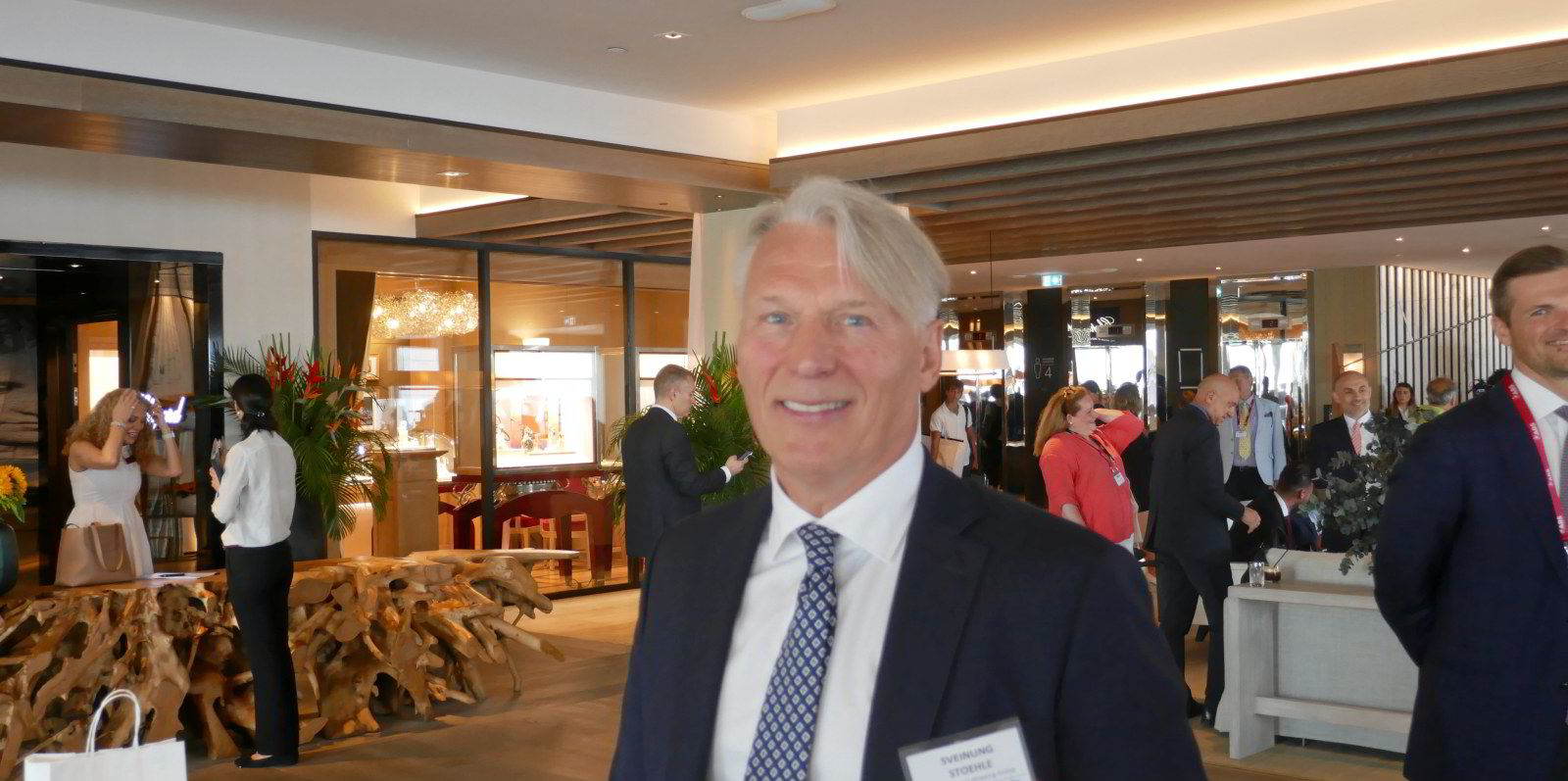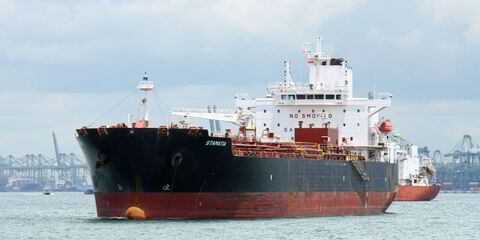The Angelicoussis Shipping Group (ASG) will go ahead and order LNG-fuelled capesizes, one of its senior executives said on Monday, at the start of Posidonia.
“We believe firmly that the best solution today is natural gas in the form of LNG,” the group’s deputy chief executive officer Sveinung Stohle said at a Capital Link panel discussion.
Click here to follow all TradeWinds’ coverage of Posidonia in our live centre.
“Obviously our LNG carriers run on gas, we are building VLCCs that will run on gas and we’re going to build capesizes that will run on gas,” Stohle added.
Asked by TradeWinds on the sidelines of the conference on how many such vessels the company plans to build, where and when, Stohle declined to elaborate other than to say that this will happen sooner rather than later.
“I can only tell you that we will do that,” he said.
So far, it has been mostly non-Greek companies, from Japan and Australia, that have been ordering such vessels.
In January, NYK Line said it had wrapped up an order for four LNG-fuelled capesize bulk carriers at three different yards - Nihon Shipyard and Namura Shipbuilding in Japan, as well as China’s Shanghai Waigaoqiao Shipbuilding.
Broking sources had then suggested that a 180,000-dwt LNG-fuelled capesize newbuilding would cost around $80m per ship, compared with $60m for one using conventional marine fuel.
Prior to this Australia's BHP has been the pioneer on LNG-fuelled bulker tonnage, chartering five dual-fuelled 209,000-dwt bulk carriers from Singapore’s Eastern Pacific Shipping (EPS) for five years, from the first half of 2022.
Super cycle
The newbuilding plans of Maria Angelicoussis-led ASG are underpinned by a robust outlook for the LNG sector.
“I think we’re looking at a super-cycle,” Stohle said earlier in the panel discussion.
Stohle justified his view by saying that total world demand for LNG jumped over the two years by 16% to 410 million tons per year — and that was even before the Ukraine war started.
Charterers are looking to lock in longer-term charters for even longer periods lately, than they did just a few months ago.
“The market prospects for LNG have probably never been better... the fleet is roughly in balance but it’s tight, and it’s going to be tight”, he added.
ASG company Maran Gas is one of the world’s biggest owners of LNG ships, with 45 such ships in the water and another nine under construction.
ASG dry bulk company Maran Dry Management manages more than 40 bulk carriers, all capesizes and newcastlemaxes.




